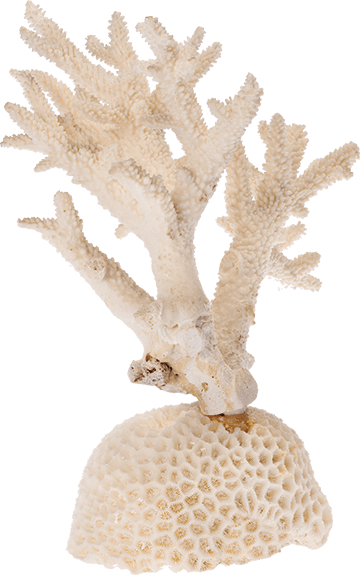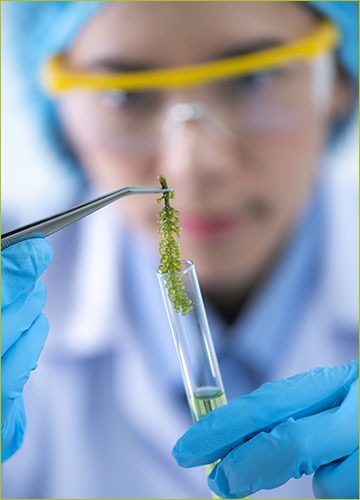Oceans cover more than 70% of the Earth’s surface and are incredibly vast and deep. Despite over a hundred years of human exploration, we have yet to scratch the surface of the secrets they hold. Over many generations, however, people have made good use of the world’s oceans as a source of food and for other reasons, including the potential benefits marine organisms may provide to human health.

“Beyond providing nutritious seafood and food supplements, marketable products, climate control, employment, recreations and aesthetic enjoyment, marine life has long been used to treat human ailments.1” One of the most common sources of products derived from marine life are phytoplankton: microscopic plants that live in both fresh and saltwater.
The Science Behind Marine Phytoplankton
The health benefits of marine phytoplankton are of particular interest because they contain a rich variety of micronutrients and macronutrients that are essential to human health. They contain a much larger variety of bioactive compounds than can be found in terrestrial plants. “Among them, pigments and lipids are recognized to have numerous positive effects on health.2”
Lipids play a crucial role in maintaining brain health by modulating neuronal plasticity and immune activity of glial cells. Pigments, in addition to adding color to things, have numerous other uses in human health. “The importance of microbial pigments has been emphasized in different applications…and these compounds are also well-known to exhibit cytotoxic, antioxidant, antimicrobial, antimalarial, . . . and antifouling activities.3“

Consumption in humans
We know that marine phytoplankton provides an essential food source for many living organisms in the sea, from the tiny krill plankton to the massive whale. In the past, human beings have also benefited from all the rich nutrients they provide by consuming sea creatures. So why not eat the marine phytoplankton and cut out the middle man?
The human digestive tract lacks the ability to break down the protective shells that encase the outside of phytoplankton. However, marine phytoplankton supplements, such as those offered by Vegan Life Nutrition, that are made of Alpha 3 CMP are processed in a way that makes them digestible by human beings.
If you would like to learn more about the science behind marine phytoplankton or our proprietary blend of Marine Phytoplankton supplements, please refer to the product page on the website.
References
1 Katona, Dr. Steve, 2015, Marine Animals in Human Medicine: Will a Sponge Save Your Life?, Oceanhealthindex.
2 Heydarizadeh, Parisa & Poirier, Isabelle & Loizeau, Damien & Ulmann, Lionel & Mimouni, Virginie & Schoefs, Benoit & Bertand, Martine, 2013, Plastids of Marine Phytoplankton Produce Bioactive Pigments and Lipids , NCBI.
3 Ramesh, Chatragadda & Vinithkumar, Nambali & Kirubagaran, Ramalingam &Venil, Chidambaram & Dufosse, Laurent, 2019, Multifaceted Applications of Microbial Pigments: Current Knowledge, Challenges and Future Directions for Public Health Implications, NCBI.
NOTE: The Ocean Health Index, Authors listed above, MDPI Basel Switzerland, and National Center for Biotechnology Information, U.S. National Library of Medicine, have not reviewed or approved the above article.
